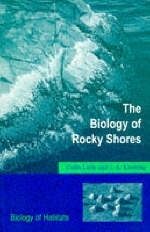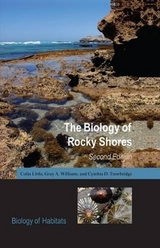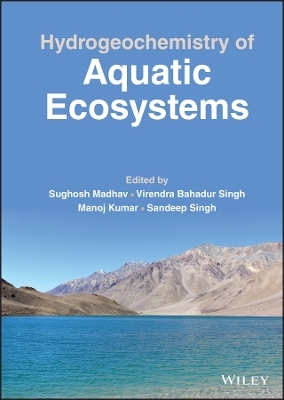
The Biology of Rocky Shores
Seiten
1996
Oxford University Press (Verlag)
978-0-19-854935-2 (ISBN)
Oxford University Press (Verlag)
978-0-19-854935-2 (ISBN)
- Titel erscheint in neuer Auflage
- Artikel merken
Zu diesem Artikel existiert eine Nachauflage
Provides an introduction to the biology of the organisms that live on temperate rocky shores, suitable for field courses and lectures. This work describes the physical factors that affect the organisms, the biology of the animals and plants that live on the shore, the factors that control them, and the communities they form.
This is an introduction to the study of marine rocky shores in the temperate zone. It is designed to encourage students and others to couple enormous intellectual rewards with the pleasure of working in some of the last easily accessible but relatively unspoilt places, and can be used as a basis for field courses, project work, or for lectures. Centred in North-West Europe, but using examples from all over the world, the book begins by considering the physical factors that characterize the habitat - primarily tides and waves - and goes on to assess how they influence the organisms that live within it. It describes how the behaviour and physiology of individuals belonging to the major groups - algae, grazers, suspension feeders, and predators - are affected by their habitat, how their communities are structured, and discusses theories of community organization. For field courses, it suggests experiments and observations that can be carried out on the shore or in nearby laboratories. Finally, problems of pollution and conservation are considered in the context of their effects upon biodiversity.
This is an introduction to the study of marine rocky shores in the temperate zone. It is designed to encourage students and others to couple enormous intellectual rewards with the pleasure of working in some of the last easily accessible but relatively unspoilt places, and can be used as a basis for field courses, project work, or for lectures. Centred in North-West Europe, but using examples from all over the world, the book begins by considering the physical factors that characterize the habitat - primarily tides and waves - and goes on to assess how they influence the organisms that live within it. It describes how the behaviour and physiology of individuals belonging to the major groups - algae, grazers, suspension feeders, and predators - are affected by their habitat, how their communities are structured, and discusses theories of community organization. For field courses, it suggests experiments and observations that can be carried out on the shore or in nearby laboratories. Finally, problems of pollution and conservation are considered in the context of their effects upon biodiversity.
1. The shore environment - problems for organisms and their investigators; 2. Vertical distributions - ' zonation' and its causes; 3. Communities on the shore - the effects of wave exposure; 4. Algae, the primary energy sources; 5. Grazers and their influences; 6. Suspension feeders - how to live on floating food; 7. Predators and their influences; 8. The functioning of rocky shores communities; 9. Biodiversity, pollution, and conservation; Further reading; Appendix 1: A brief classification of selected organisms; Appendix 2: Some sites at which research quoted in the text has been carried out; Index
| Erscheint lt. Verlag | 4.4.1996 |
|---|---|
| Co-Autor | J.A. Kitching |
| Zusatzinfo | numerous line figures |
| Verlagsort | Oxford |
| Sprache | englisch |
| Themenwelt | Naturwissenschaften ► Biologie ► Limnologie / Meeresbiologie |
| Naturwissenschaften ► Biologie ► Ökologie / Naturschutz | |
| ISBN-10 | 0-19-854935-0 / 0198549350 |
| ISBN-13 | 978-0-19-854935-2 / 9780198549352 |
| Zustand | Neuware |
| Haben Sie eine Frage zum Produkt? |
Mehr entdecken
aus dem Bereich
aus dem Bereich
Naturerfahrungen zwischen Quelle, See und Wildfluss
Buch | Hardcover (2024)
Verlag Anton Pustet Salzburg
30,00 €
Buch | Hardcover (2022)
National Geographic Deutschland (Verlag)
39,99 €



